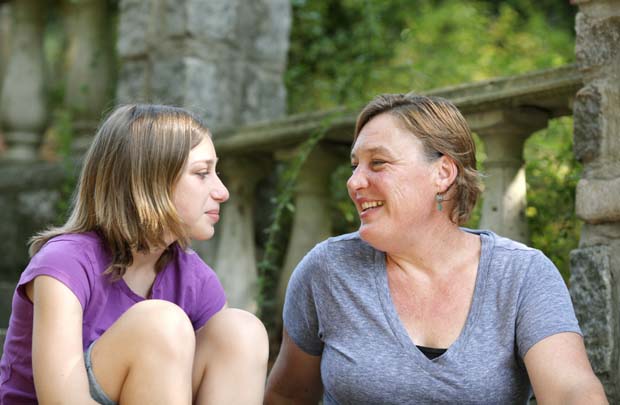
We live in a country where everything is always “fine.” An acquaintance asks you how you are doing, and even if you’re having the worst day of your week, you’re probably going to say “fine.”
We’re just not good at discussing difficult—and potentially hurtful—topics. So we avoid doing it. But if you’re a foster parent or adopting children from foster care—especially older children—you’ll probably need to talk with them about their past. Because the reality is that a lot of kids don’t know much about their own stories. And it’s your job to tell them.
Here are a few of the things that I learned in 26 years of working with children in foster care that I hope will help you talk with children and teens about their lives and the circumstances that brought them into care.
First, consider the age of the child
Kids can accept any information if you explain it in the right language. And what you are going to tell them is probably no worse than what’s in their head. They think the worst, and they deserve a reality check.
Developmentally, children fall into three age groups: littles, middles, bigs. How you tell them their story depends on their developmental (not actual) age.
- Littles—children younger than six or seven: Tell them their story in short sentences similar to the way you would read them a book, maybe while they are snuggling on your lap. You might say something like: “You know Ms. Adel who comes to see you…that’s your birth mom.” Give them the words to identify the people and events going on in their lives.
- Middles—up to about eleven: Around the developmental age of six or seven—and continuing up to pre-adolescent—an explosion happens in children’s brains! Kids start to understand concepts like good and evil. Loss and sorrow. Happy, sad, and angry. And that you can have all of those at the same time. These are kids you can really talk to and have them understand what you are trying to communicate.
- Bigs: I always say: If you’ve got something to tell a child, try to tell them before they turn eleven! Because once puberty strikes, they’re in another world! They don’t want to talk with you at all. They think they know everything already. But the good news is that they will listen to reality if it’s presented with respect. No baloney! For example, you can say to these kids: “Listen, I’ve learned some bad stuff. Are you ready to hear it?”
Make a plan, set a stage
Tough talks do not happen spontaneously. To make a difficult conversation effective, you need to be prepared, the child needs to be ready to listen, and the setting has to be right.
Talking while going for a drive is a favorite approach for many parents. Eye contact and intimate pressure are off, which kids love. You can set the stage by saying something like: “See this car? It’s a bubble. No one can hear what we are talking about.”
Having a conversation over a meal of kid-friendly food, like pizza and ice cream, is another easy way to take the focus off of the child.
Remember that before you ever get in the car or plan an outing, you must know what you are going to say! It can be helpful to write a script, and practice it in front of the mirror or with a friend, in confidence. But do this knowing that this is a conversation, not a speech. You should always ask a child whether they are ready for a piece of difficult information—like about a birth father in prison. If that child isn’t ready, they will say so.
Tell them their story in stages
Follow your feelings and your gut as you set a pace for talking with a child about their past. Let them know that this is a continuing conversation. Don’t disclose more than you think they can handle. But if they ask for more details, share them.
If a child refuses to accept what you are telling them, or starts to disassociate, stop! Then make a plan to continue the conversation later. You might say something like, “Let’s talk more about this next week over pizza. I’ll mark it on the calendar.”
Parents often asked me when they should bring in a therapist. My advice is not to run to a therapist right away. Because as a parent, you need to develop a relationship with the child first. And that requires having difficult conversations.
Share your own feelings
Sharing your own feelings is one way of modeling for kids how to deal with tough facts and feelings that surround them. It’s also an effective way of normalizing telling a child disturbing news. I’ve had parents say, “I learned about what happened to you when you were a little boy, and I’m so angry. I wish I had been there. I would never have let someone do that to you!”
Final thought: Harry Potter’s Cloak of Invisibility does not apply!
We’re the adults, and we should not be carrying children’s secrets around or lying to them. If you present information thoughtfully and at the right time, I truly believe that there is nothing that children shouldn’t know about their family and their life.
In your conversations with children, remember my four guiding principles:
- Never lie.
- Don’t tell children more than you think they can handle. But if they ask for more, tell them.
- Never say anything that you will have to change later—unless it is because you get new information.
- Don’t let self-protection dictate what you say.